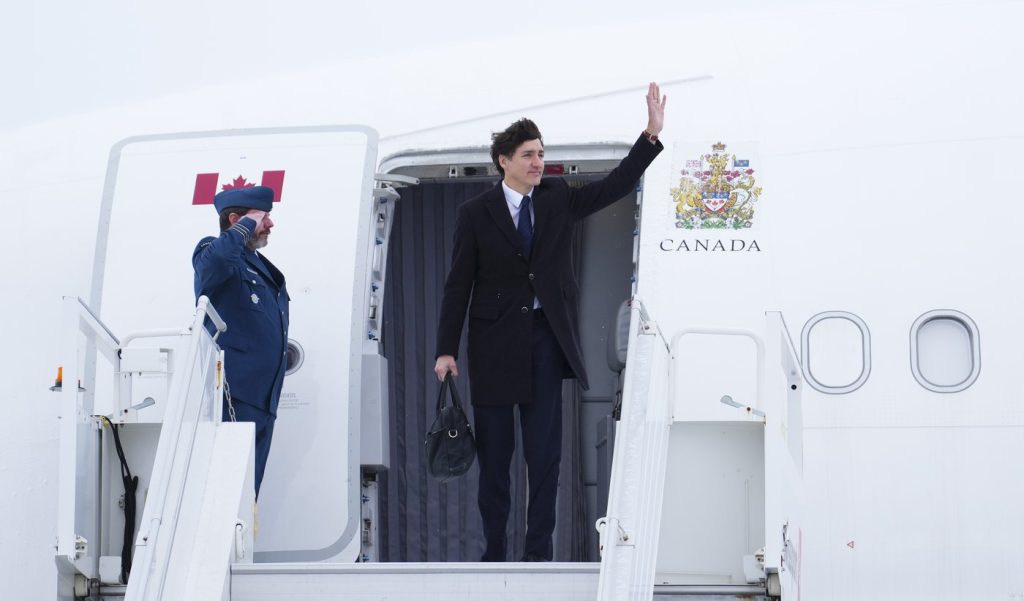OTTAWA Prime Minister Justin Trudeau is traveling to London this morning in anticipation of a European defense summit scheduled for tomorrow, which aims to establish conditions for a lasting peace in Ukraine. The summit was previously announced to involve various European leaders but has gained heightened significance with the attendance of Ukrainian President Volodymyr Zelenskyy, who recently held a controversial meeting with U.S. President Donald Trump at the White House.
The discussions between Kyiv and Washington are expected to include a pivotal agreement on critical minerals, as part of broader efforts to resolve the ongoing conflict between Ukraine and Russia. However, tensions surfaced when Trump exhibited open disdain for Zelenskyy after the Ukrainian president insisted that the agreement should encompass security guarantees from the United States.
Concerns among European nations intensified earlier this month following Trump's overtures towards Russia, prompting European leaders to devise their own strategies to bolster Ukraine's defenses, aligning them with what they perceive as Europe's core security interests. Notably, Canada was not included in the list of countries invited to join the summit on Sunday, as indicated by British Prime Minister Keir Starmer during his recent visit to Washington, where he met with Trump.
Steve Hewitt, an intelligence researcher and Canadian studies instructor at the University of Birmingham in England, suggests that Trudeau's attendance at the summit serves as a political statement reflecting Canada's choice of partners. He remarked, “It’s a sort of political statement in many ways,” emphasizing the strong symbolism surrounding this meeting.
The symbolism extends to the social media displays of support for Zelenskyy from Trudeau and various European leaders, which represents a clear positioning that contrasts with Trump's approach. Hewitt characterizes the current geopolitical climate as unparalleled, particularly drawing comparisons with historical events from the last century, such as World War II and the Cold War.
Moreover, Hewitt identifies a parallel between the United Kingdom's decision to exit the European Union and Canada's evolving reliance on the U.S. for defense and economic security. He observes that both nations have, to some extent, been left adrift in their security strategies. Starmer has articulated his vision of positioning the UK as a bridge between the U.S. and the European Union, but Hewitt cautions that this approach may risk alienating both sides.
In light of these developments, Canada appears to be pursuing stronger relationships with partners beyond the U.S. Starmer is set to meet with Zelenskyy ahead of the upcoming discussions and has also extended invitations to leaders from NATO, the European Commission, and several other countries, including France, Germany, Denmark, Italy, and the Netherlands.
Starmer's recent comments in Washington raised eyebrows among Canadians, particularly due to his failure to challenge Trump's remarks regarding the annexation of Canada. Hewitt described Starmer's lack of a firm response as “very insulting” to many Canadians, yet it received minimal media coverage in Britain, despite the significant historical ties between Canada and the UK and ongoing calls for the British monarchy to address Trump's statements.
Hewitt expressed his frustration with the apparent obliviousness in the UK regarding Canadian affairs, highlighting the overwhelming focus on U.S. relations. He remarks, “Those things aren’t going to happen, and I think the Starmer government has calculated that they need to somehow stay on the side of the United States.” Having lived in Britain for over two decades, Hewitt's insights reflect a deep concern for both Canada's standing and the broader implications of current geopolitical dynamics.
This report has been adapted to summarize the significant events surrounding the European defense summit and the evolving alliances in light of the ongoing conflict in Ukraine.










